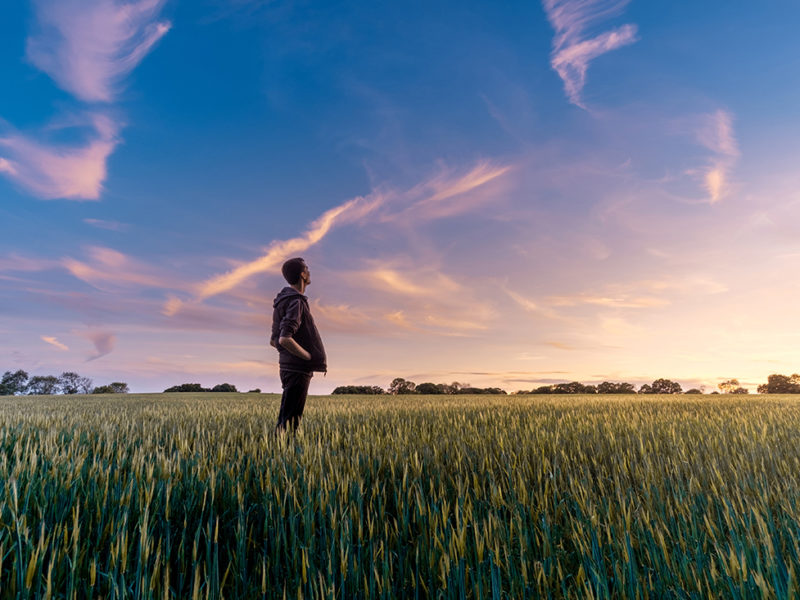Nearly a year into the COVID-19 pandemic, the agriculture industry continues to demonstrate resilience and reliability. It’s on my 2021 agenda to continue to talk about this achievement publicly to continue to educate those outside agriculture, but I’m also marking the beginning of a new year celebrating the growing normalization of talking openly about mental health within agriculture.
Like many of you, this fall I attended agricultural conferences and meetings online. It’s not the same as meeting in-person, which I love, but these gatherings enable me to continue sharing stories with you in Country Life in BC. A number of the events contained a mental wellness component. Anxiety, depression and even suicide within the agriculture community are being talked about openly. Here’s an example.
As a board member of the BC Farm Writers Association and its representative to the Canadian Farm Writers’ Federation, I participated in an online fireside chat last month with federal agriculture minister Marie-Claude Bibeau. My question: what is her message is to those who target the beef sector for its contributions to climate change?
One of the first things she said was, “I worry about the mental health of those in the meat sector.” She went on to say farmers are essential to society and that she wants to put more emphasis on building increased public pride and trust in Canadian farmers across sectors. She mentioned producers’ strong dedication to their work, to sustaining the land as well as their commitment to continuous improvement and technology adoption. It wasn’t exactly the direct answer I was hoping for, but that was secondary.
Hearing an agriculture minister use the words “mental health” in a conversation with about 40 agricultural journalists and writers made me smile. Why? Because the topic is personal.
January 10, 2021 marks 26 years since my dad died by suicide. On dad’s side of my family, mental unwellness – depression – goes back several generations. Although dad, who I loved dearly, never farmed, he was raised in a farming community in Saskatchewan. His father took up grain farming when he retired from operating the town’s general store.
Getting through my grief involved attending a group called Survivors of Suicide. It was for people like me who’d lost someone in this very different way. My mom and I hated why we needed this group, but it was a godsend. We weren’t alone. Others had been on a similar journey.
Although that was 26 years ago, something struck me then that still remains. The facilitator, a most compassionate woman, shared suicide statistics. She strongly believed the number was underreported. One of her reasons was the number of rural deaths that are classified as accidental. She mentioned farm accidents, as well as those who just happened to drive into a moving train.
I never researched her theory, but as a television reporter at the time, it seemed plausible to me. While society acknowledged pressures on producers, the impact of those pressures on mental health was rarely if ever discussed. Anxiety, depression and suicide weren’t part of mainstream conversation.
Since then, whenever someone openly acknowledges or speaks the words “mental wellness” or “mental health,” I consider it a big win. Talking openly about an issue is the first sign of positive change.
The Advancing Women in Agriculture conference last month, with about 700 registrants, also featured two mental health testimonial sessions.
A mother and daughter spoke about learning to live with the younger’s on-going anxiety saying “those facing physical exhaustion or mental health challenges don’t often hold up an ‘I need help’ sign.” One tip offered was for the person struggling to start using a set phrase such as, “That’s all I have for you today,” to indicate their emotional or mental exhaustion to others. In all my years, I’d never heard this before. It’s great advice.
Additionally, conference speakers suggested journaling, taking time each day to note moments of gratitude or joy, and using apps like Headspace, Calm, Happify, Breathe and Lifeworks to aid mental wellness. Keynote speaker Michelle Cederberg said agricultural women know how to “get sh*t done” but too often say “I haven’t even had time to pee.” She told the audience that statement shouldn’t be a sign of achievement but rather a physical and mental health warning. Another speaker shared his attempted suicide story. The big positive in this is how it inspires and gives courage to others to share their journey and ask for help.
While I’ve never attempted self-harm, there’ve been times where the thought crossed my mind, always in the midst of one of my bouts of depression. I’ve had a few, in my 20s and following the birth of one of my kids in my 30s. I like to say I’ve carried on the family illness. Luckily, I found a medication that works. And now I’m also able to notice when I’m not feeling myself and take action.
Each time I share my experience, most people share their own direct or closely-related experience right back. In talking openly, I always hope the negative stigma associated with mental health is destroyed. The illness doesn’t discriminate by commodity, income level, age, nationality or sex.
So, if at the beginning of this new year, when everyday farming pressures are coupled with the pressures of living in a pandemic, if you aren’t feeling yourself, be brave. Tell someone. You‘re not weak, crazy, or seeking attention. Most of all, you are not alone.
And if you see someone who is not themselves, have the courage to say, “I’ve noticed you don’t seem like yourself lately. I care about you. Are you thinking about hurting yourself?”
You won’t be giving them a suggestion. You’ll be creating an opening that could be their lifeline.


 Grower takes issue with groundwater limits
Grower takes issue with groundwater limits